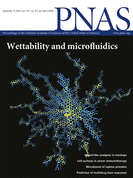
Wettability control on multiphase flow in porous media:
A benchmark study on current pore-scale modeling approaches
Multiphase flow in porous media is important in many natural and industrial processes, including geologic CO2 sequestration, enhanced oil recovery, and water infiltration into soil. Although it is well known that the wetting properties of porous media can vary drastically depending on the type of media and pore fluids, certain aspects of wettability control on multiphase flow continue to challenge our microscopic and macroscopic descriptions. The gap in our understanding could be bridged by pore-scale modeling, which has seen rapid development in recent years and is becoming a useful predictive tool in both academic and industrial applications. The goal of this benchmark study is to provide an experimental dataset to validate and improve different pore-scale modeling methodologies, including but not limited to Lattice Boltzmann methods (LBM), smoothed-particle hydrodynamics (SPH), Cahn-Hilliard phase-field models, volume of fluid (VOF) methods, level-set methods (LSM), and pore network models.
You can learn more about the benchmark study here. The sign up period for the benchmark study has ended. If you missed the deadline but still wish to participate, please email us directly to gain access to the experimental data set.